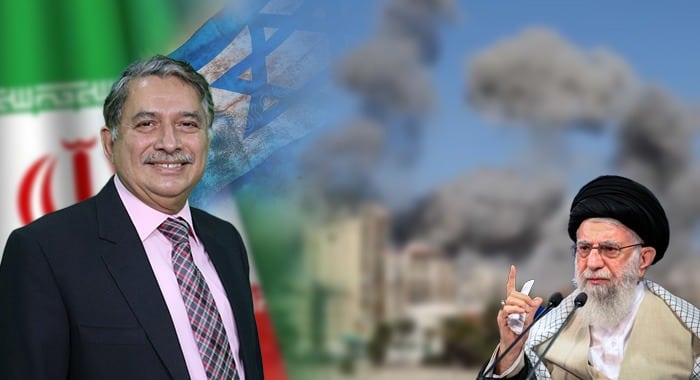Syed Akhtar Ali Shah
In order to talk about counter terrorism strategy with the seriousness it demands, one must draw upon the experience of those who have been at the forefront of the state’s response. My own career in the Police Service of Pakistan began in 1988, and from my early assignments in the Frontier Constabulary and as Superintendent of Police (SP) Rural and Urban Peshawar, I witnessed first-hand the evolving security landscape of our region. Back then, sectarian violence was an issue, but it was still containable within the framework of conventional policing. However, by the time I was posted to Bannu in the early 2000s, a different reality had begun to take shape—one marked by parallel administrations and the emergence of terrorist enclaves, particularly in areas adjoining North Waziristan.
In 2004, during my posting in Swat, ominous signs of a new form of militancy were already becoming visible. I recall the Chitral Bank IT case, in which the perpetrators robbed a bank while chanting religious slogans. When we arrested them after a 48-hour operation, it became evident that they were affiliated with various former jihadi organisations. This indicated a dangerous ideological shift among militant actors, suggesting they were not merely criminals but were subscribing to a broader worldview. I shared these concerns with the Inspector General of Police at the time in a formal report, outlining the emerging threat and the need for a proactive counter-strategy.
I warned that although the militants had been subdued for the time being, their ideological framework rooted in transnational Islamist movements and influenced by developments in the Philippines, Malaysia, and parts of the Arab world would not dissipate on its own. I stressed that unless strategic countermeasures were implemented, including enhancing police capabilities, establishing anti-bomb squads, deploying sniffer dogs, and bolstering intelligence capacities at the grassroots level, the militants would re-emerge. Unfortunately, those recommendations were not acted upon promptly, and the predictions proved true.
By 2006–07, when a caretaker government was in place, the security situation in Swat had deteriorated to the extent that a full-scale military operation had become unavoidable. Police stations and Frontier Constabulary posts were under attack, supply lines were disrupted, and militants had begun to take control of entire regions. Law enforcement officers who happened to be on leave were often intercepted and brutally murdered by insurgents. In such a scenario, there remained no alternative but to launch a decisive operation.
The initial stages of the operation involved coordinated strikes by the Pakistan Army, followed by cordon-and-search operations jointly executed by the military and police. These efforts eventually restored relative peace by 2008, as reflected in the reopening of educational institutions like Sangota Public School and the revitalisation of public life in Saidu Sharif. However, this fragile peace was tested when the new coalition government, comprising the Awami National Party and the Pakistan People’s Party, opted to give dialogue a chance. Agreements were made with the Taliban, but the experiment failed, culminating in the militants’ aggressive incursion into Buner. This breach of trust necessitated yet another military response, which resulted in the displacement of over 2.2 million people and a second, more expansive operation.
Effective counter terrorism policy must begin with a deep understanding of the operating environment, including the adversary’s ideology, recruitment networks, and support base within society. These are not ordinary criminals. They are part of a sophisticated insurgency that employs ideological narratives to attract sympathisers and justify their violence. Addressing such a threat requires more than brute force; it requires narrative-building, governance reforms, and comprehensive institutional preparedness.
Gaps in governance that create public resentment must be urgently addressed to prevent militant ideologies from gaining traction. Police our first responders must be equipped with modern weaponry, surveillance tools, and communication systems to counter these threats effectively. Counter terrorism cannot remain the sole domain of specialised units; each district police force and even individual police stations must be trained and structured to handle terrorism-related threats. This is especially crucial for vulnerable districts like Dera Ismail Khan, Bannu, and others in southern Khyber Pakhtunkhwa, where attacks on police stations and check posts have become alarmingly frequent.
During the Swat operation, the key to success lay in actionable intelligence. Once precise data was available identifying hideouts and strongholds in mountainous terrain military operations became far more effective. Artillery and infantry units acted in tandem to neutralise these threats, supported by coordinated maneuvers that encircled the enemy from multiple flanks. These battlefield strategies, while critical, were only effective because they were rooted in ground intelligence and situational awareness.
Recent developments on the global stage, such as the Israeli strike on Iran, also warrant urgent reflection. As a member of the United Nations, Iran enjoys the same protections of sovereignty as any other state. This strike represents an open act of aggression and risks derailing diplomatic efforts already underway to defuse tensions over Iran’s nuclear programme. Even the UN Secretary-General has condemned the attack, calling for restraint. If the major powers including the United States and Russia—fail to act responsibly, this flashpoint could plunge the entire region into instability. The repercussions of such a conflict would not be confined to West Asia; they could fuel extremist narratives across the Muslim world, intensifying radicalisation and undermining efforts to foster peace.
The time has come for a globally coordinated approach to peace-building and counter terrorism, one that goes beyond military solutions. Whether in Swat or the wider Muslim world, the battle must also be fought in the realm of ideas, governance, and justice.





